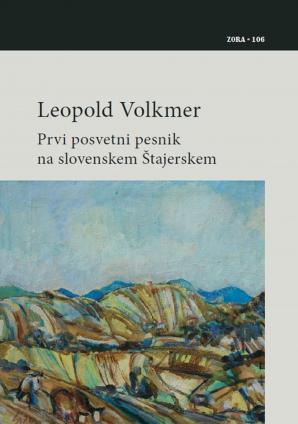Leopold Volkmer: prvi posvetni pesnik na slovenskem Štajerskem
Synopsis
Leopold Volkmer: the First Secular Poet in Slovenian Styria. Great credit for Ptuj and the surrounding area has Leopold Volkmer. As the son of Anton Volkmer, a market gutter in Lotmerk Square and his wife Anna, born Ebenreich, he saw the first white den on October 13, 1741. Ten years later, on January 5, 30 houses in the square fell victim to wild flames. A month later, the Empress Maria Theresa came to Ptuj and left the Count of Leslie's castle and drove to the Upper Hajdina every day to see the army. The unfortunate Lotmerians seized the opportunity and sent a scuffle of other trusted marketers, including the fallen honest Silesian Anton Volkmer, to Gornja Ptuj, and asked the mother of the land for merciful assistance to the aggressors. Because a considerable sum of money had been allowed for him and his companions, he revived his new work and supported him in order to dedicate his growing, hopeful, full son to the teachings. At that time, Leopold began to learn in Varaždin, and he progressed with all excellence. The Croatian-Slovenian dialect, which dictated a good study of thematic tasks, was his side concern at the time. He could be used to getting used to it at a young age; he also did this and practiced in that language until his advanced age. Varazdin, where he famously completed the six lower classes, gave him the first image; Graz graduated in blue and theology courses. After that, only, September 22nd. In 1764, Leopold received the ordination of the interpreter and made his first sacrificial offering to God in the parish church of St. Of John in Lotmerk; on this he came to the diocesan secular priestess, practiced here in all the activities of spiritual pastoring, and made his last appearance in 1765, rich in necessary knowledge, chaplaincy at St. Ožbalt outside Ptuj. - Already here, the misery of other affairs with the school youth was piling on; moreover, in the city where the bishop's will called him in 1769. From that appointment in 1769 to l. In 1784 the teaching of talented young men was a knowledgeable, never annoying business, which he carried out with zeal, partly with the children of the bourgeois, partly with the cultivators c. k. a military establishment, which tirelessly broke the bread of exclusion, and thus fed their hungry spirit with pure doctrine. In September 1784 Volkmer left the city chaplain, which was not at will of his superior, Ploheln, and went as a chaplain to the parish of St. Urbana, where he buried his affectionate friend, the parish priest, Matjaš Omulec, and remained the caretaker at the abandoned parish from August 27 to February 2. 1789; he then supplied the vicarage of Wurberg from the 3rd of February to the 4th of June, and hoped that the holmci would rest in a friendly place for a while. But his living spirit gave him no peace; he grabbed a pen and wrote Slovene songs from tobacco and from the farmhouse and there he was throwing some mistakes, spreads and old habits of the farmhouse; He also wrote church songs for the divine service of God, of which there is a mixed song and chant: We praise Thee God, as well as other spiritual songs are worthy to be added here. He also wrote the Sunday and holiday Gospels, with a briefly encouraging interpretation in the national language that everyone in the Ptuj dean understands. Omulec, the parish priest named above Urban, in dying his beloved Volkmer, left even his wealth in the firm belief that his successor would be in the service; because, however, the poor bite of him did not rejoice in the parish, nor did he ask for it, but the chaplain decided to stay and work in the vineyard of the Lord for as long as his powers could begin to walk. He fulfilled his purpose, worked with great diligence, and enjoyed the confidence of the crowd, partly for the sake of a seeming life, partly for the sake of heart-warming teaching, partly for the sake of the good world, which many patients knew about the remedying health, . In all this he did not look at what would serve him, much less to show that he was looking at it. He wrote beautifully, neatly, and to him, only four years before his death had his letters broken when his eyes became weak; he was a fair-minded man, sincere; his tireless workmanship could mean nothing; he loved his homeland burning; he was devout without hypocrisy; he cared for shy poor people around the houses because they had pity on him; against friends he was a solid character with no change; he was full of wit and an honest priest, all of which makes him unforgettable. The gloryless days of his brilliance ran through his writing, the confessions and the learned reading of such writings, which he bought every year; his time was shortened by teaching at school or at the lens, or even in the villages of the parish; they were the time he treated so economically that he would gain something for himself, the youth and the people. In this tireless act he weakened his nerves, especially his eyes; therefore, he was loaned to the people by the people of Janez Miroslav, prince of Bishop of Szewski, in 1808, and was dedicated to the "private titel" of the Lotmer merchants, from the provincial government 200 fl. pensions. Even now Volkmer did not celebrate; he also lived as a henchman
Downloads






